Press Release - 14 January 2005
Aequitas Computer Systems is proud to announce a sponsorship agreement with Classic British Racing, a Port Elizabeth based team that participates in motorcycle races in the classic class.
The team will be making an appearance at the Killarney Racing Circuit in Cape Town during the International Historic Race Day meeting on the weekend of 5 and 6 February 2005. Mr Ray Wakefield of Classic British Racing is a seasoned campaigner who has gained national and international credentials during a racing career spanning 40 years. In addition to decades of experience in preparing motorcycles for competition, he also imports parts for classic machines, helping to keep alive the traditions of the heyday of British biking.
Wakefield, having settled in South Africa in the 1980’s, is a key player in Speedrecord SA, an organisation devoted to the development of South African motor racing assets by facilitating international record breaking attempts at local venues.
“The decision to support Classic British Racing was an easy one,” says Andrew Freeborn of Aequitas Computer Systems. “We have been aware of Mr Wakefield’s contribution to the international awareness of South Africa as a motor racing destination for some time. Local companies that take the opportunity of associating with these efforts help to stimulate the economy by publicizing South African know-how in the international arena.”
Aequitas Computer Systems, based in Cape Town, provides software development and consulting services. The company specializes in software publishing, lending assistance to local vendors who want to market their products to the international community. “South Africa produces world class software products,” says Freeborn, “and our vision involves increasing international awareness of local skills. As such, we are not very much different from Classic British Racing and our co-operation is a perfect blend of enthusiasm and constructive marketing.”
The International Historic Race Day is organised by the Western Province Motor Club and Classic British Racing plans to bring a 1969 BSA A65 Lightning and a Triton special, custom built to 1960’s club racing specification, to the event. The teams results will be posted to the Aequitas web site as they become available.
Wakefield Racing History
1964 – 1969: Started racing in the UK at club and later national level on 500cc Norton and 250cc Royal Enfield machines. This resulted in receiving factory support from Royal Enfield during 1966 and 1967.
1968 & 1969: Turned to sidecar racing as a passenger for Dennis Keen, a successful international competitor using outfits powered by Triumph, Vincent, and later Konig engines. Was entered for Isle of Man TT races, June 1968, but an accident shortly before prevented participation.
1972 – 1982: Gave up active participation but prepared racing motorcycles for national and international events including TT, Manx Grand Prix, and Southern 100 races.
1983: Immigrated to South Africa.
1995: Returned to England to participate in the Helmut Fath Memorial Sidecar Race at the Silverstone Circuit. This was a prestigious international, invitation-only event that included many stars of the sixties and early seventies, among them two former World Champions.
1996: Began racing a 650cc BSA in Classic motorcycle races in Port Elizabeth and East London.
1997: Fourth overall in the East Cape and Border Championships (Classic Class).
1998: Continued in Classic class, but retired at end of season.
2004: Triton Express National Race Day, East London circuit. 2nd overall in Classic Class in first race for six years.
2005: Sponsorship agreement with Aequitas Computer Systems for the International Historic Race Day at Killarney on 6 February. It is hoped to campaign as Classic British Racing in at least two East London race meetings, and possibly a similar number of events at the Aldo Scribante circuit in Port Elizabeth, if funding can be secured.
The Motorcycles
The stable consists of two machines, either one of which may be used. Both conform to the regulations adopted by the governing body of motor sport (MSA) for Classic Motorcycles.
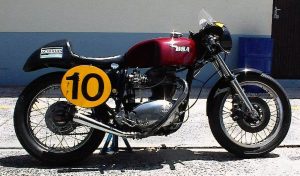 1969 BSA A65 Lightning
1969 BSA A65 Lightning
This features an imported big valve head, oversize valves, twin 32mm MkII Amal carburettors, single disc brake (as allowed by the regulations), modified valve gear, etc. It is a well tried machine with many trophies to its credit.
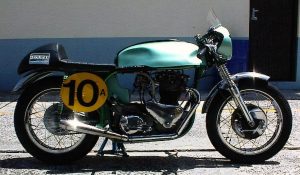 Triumph/Norton Special (Triton)
Triumph/Norton Special (Triton)
Typical of the “special” clubman machine of the ’60’s, this comprises a Norton frame housing a tuned Triumph “Bonneville” engine. Many one-off modifications have been incorporated into this machine, which has been under construction for a number of years. It has been made specifically to be an eye-catching motorcycle as well as a capable racer. Judging by the interest shown so far, and the number of photographs that admirers have taken, it fulfills this aim. It has yet to be raced in anger as, being in effect a new machine, it requires some initial ”bedding in”.
Awaiting a complete re-build in the workshop is an ex-Grand Prix racing sidecar outfit. The history of this is obscure, but it is a professionally built chassis that unfortunately has been hacked about by an obviously amateur welder. Therefore much of the tubing will need to be replaced, and the whole lot X-rayed. It features wide 13″ mini wheels on sidecar and rear, with a 10″ mini wheel at the front. Powered by a fearsome Kawasaki engine that has been enlarged to no less than 1540cc, the machine stands no more than knee high. There are reservations about using the current engine as it may well prove too fragile and keeping it cool (especially the oil) may be near impossible. A good second-hand standard Kawasaki 1000J motor, or similar, is needed. It will only be used for parades as there is no sidecar class in motorcycle racing in this South Africa.
Gallery
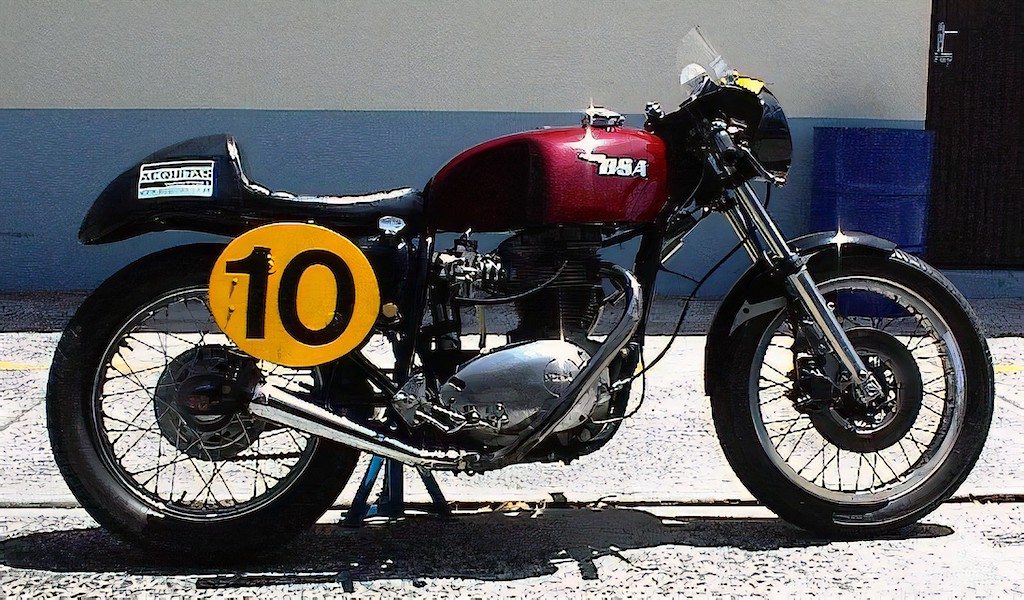
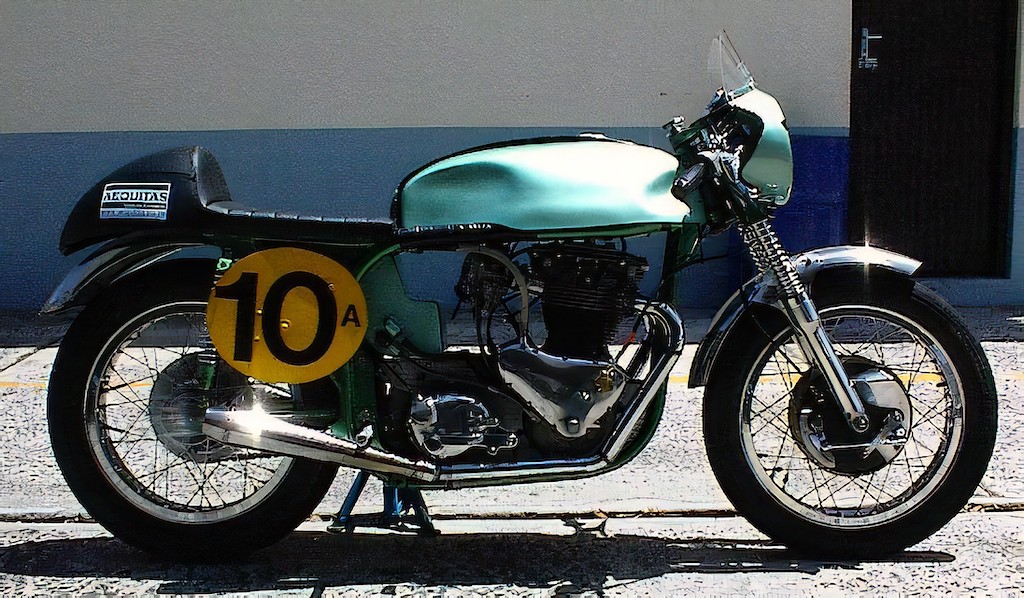
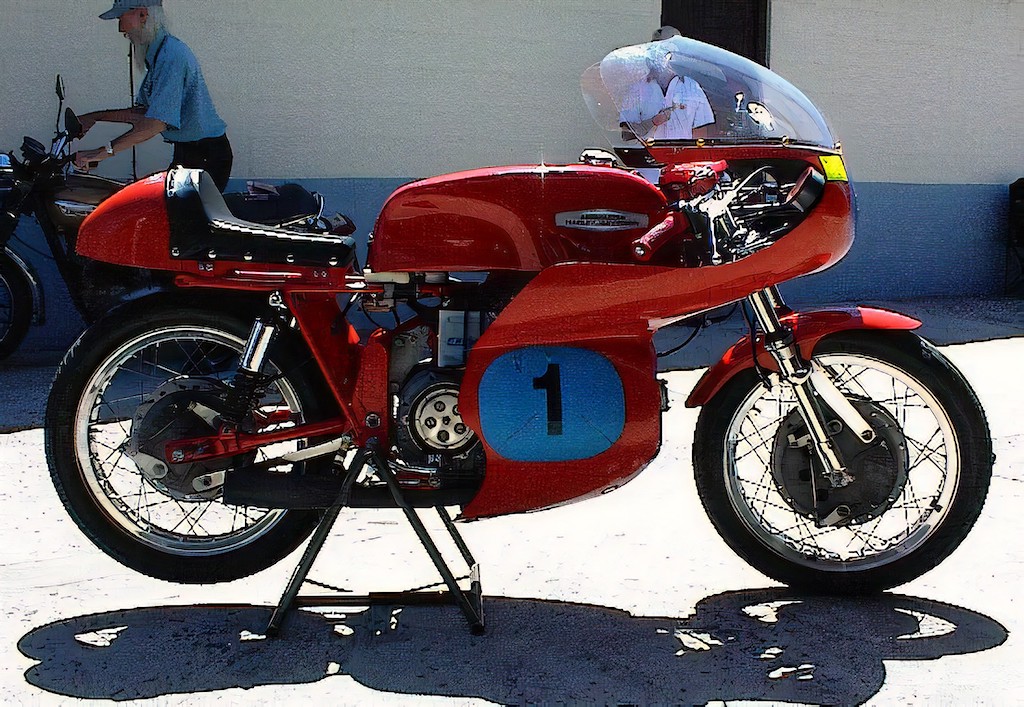
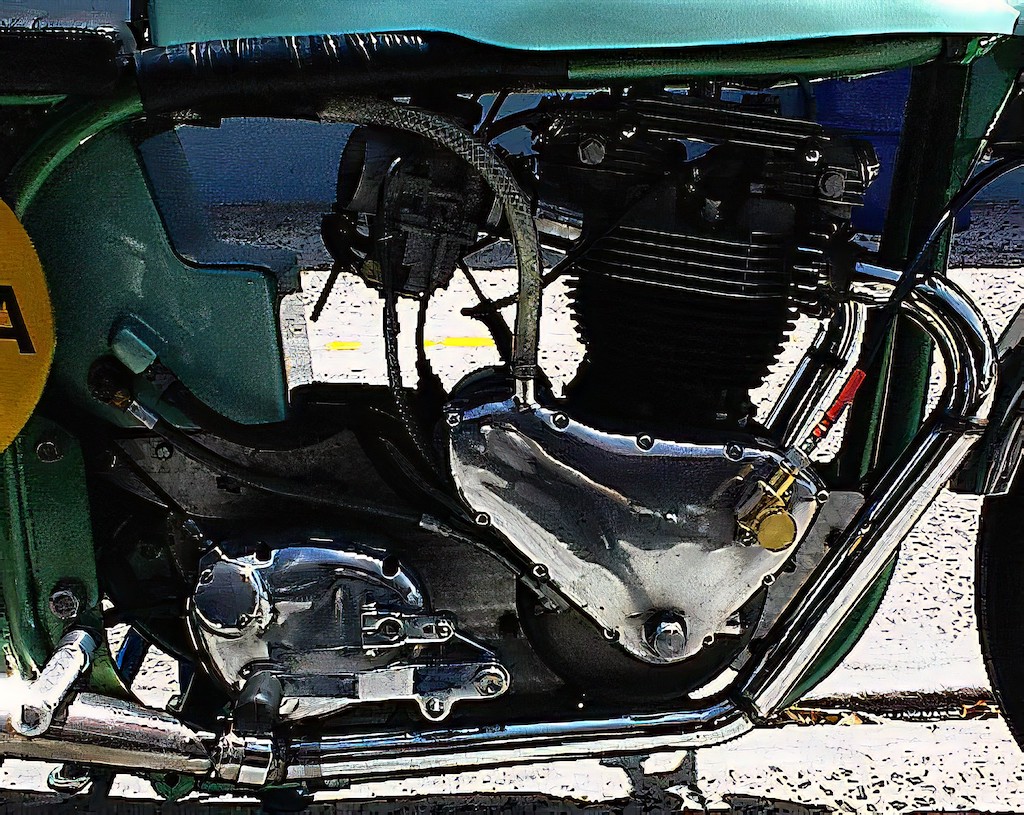
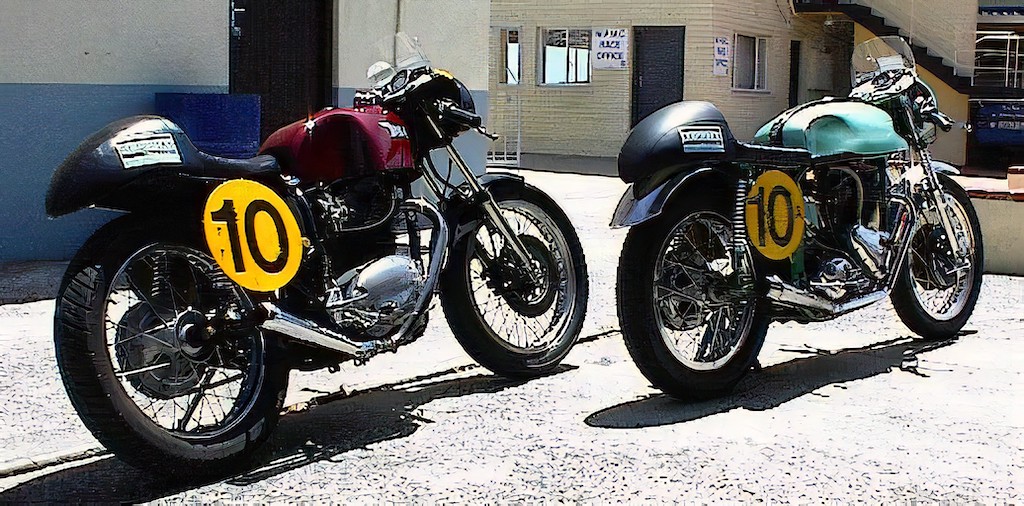
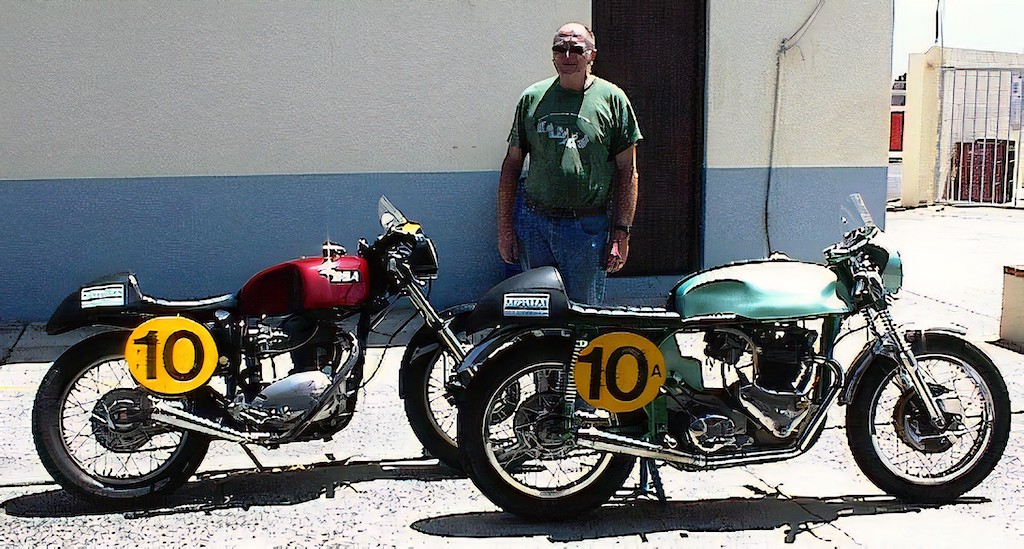
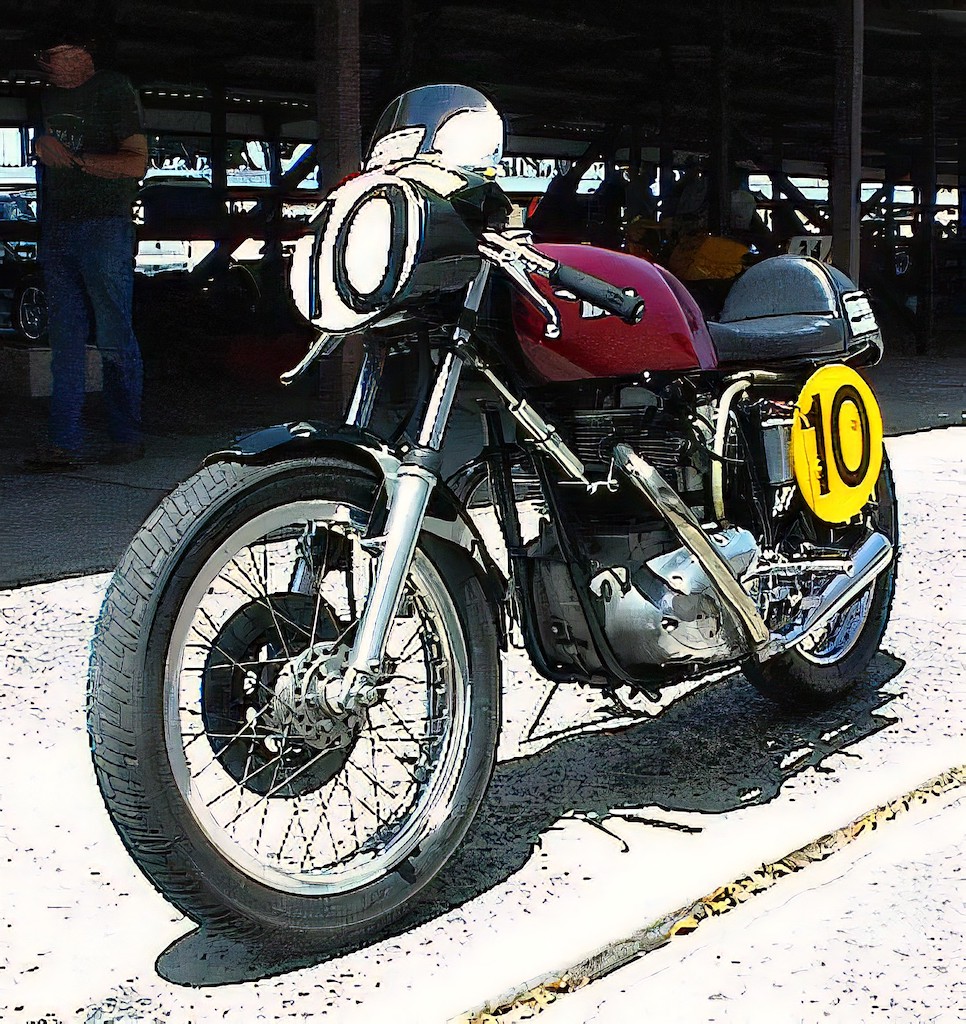
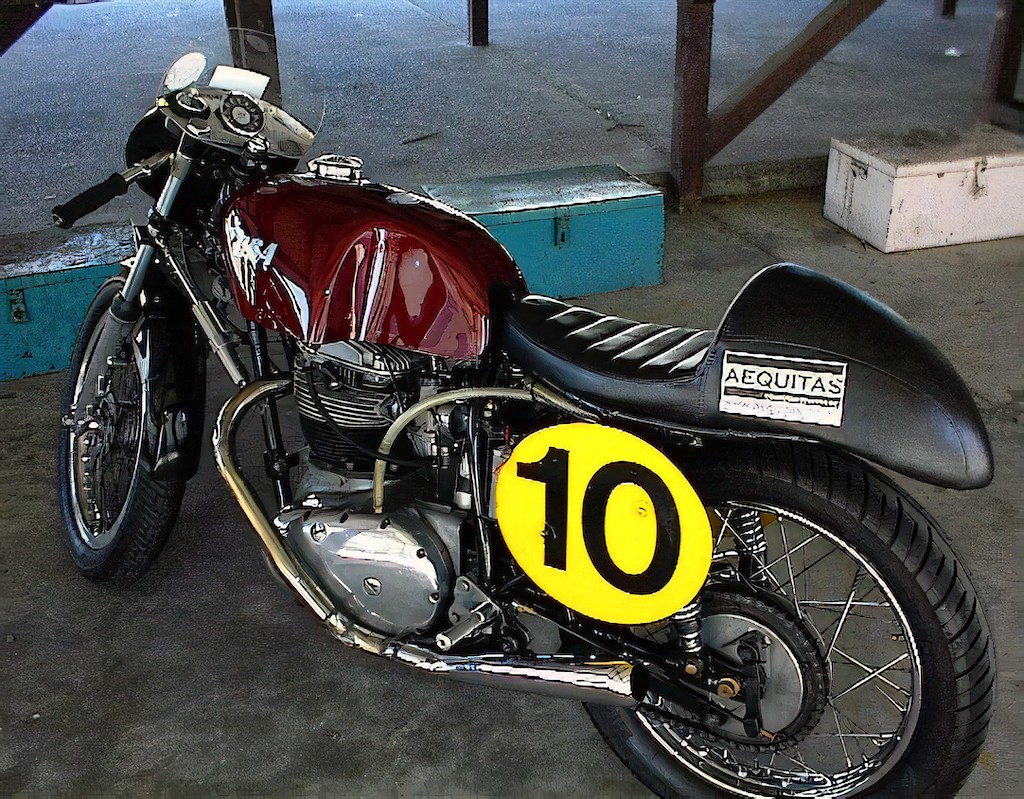
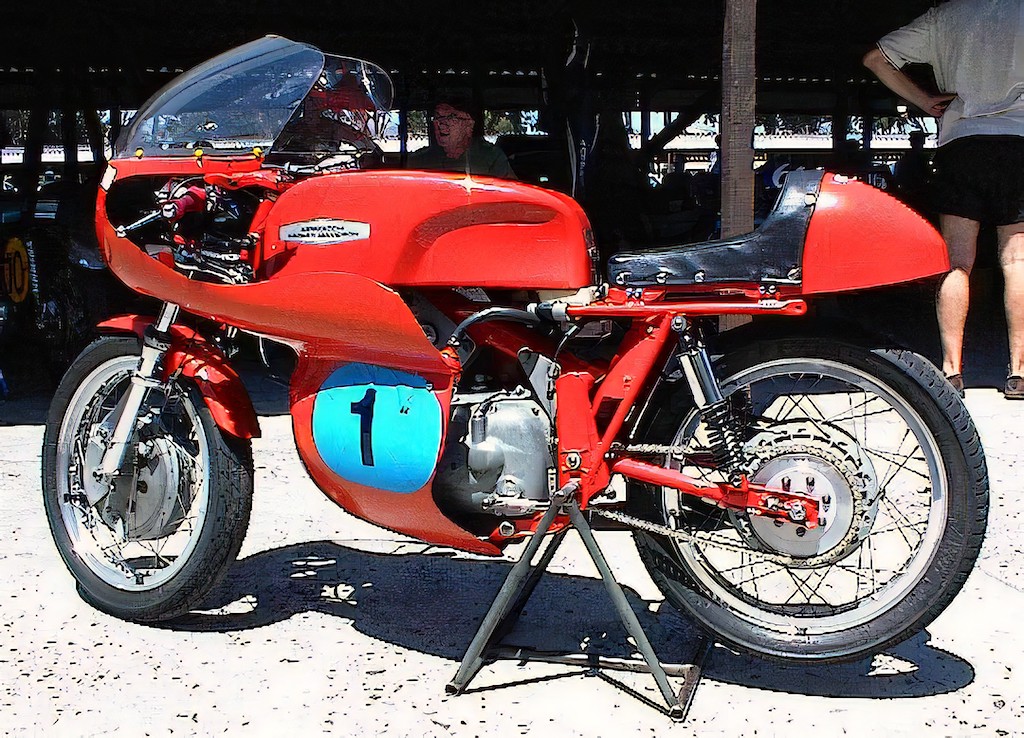
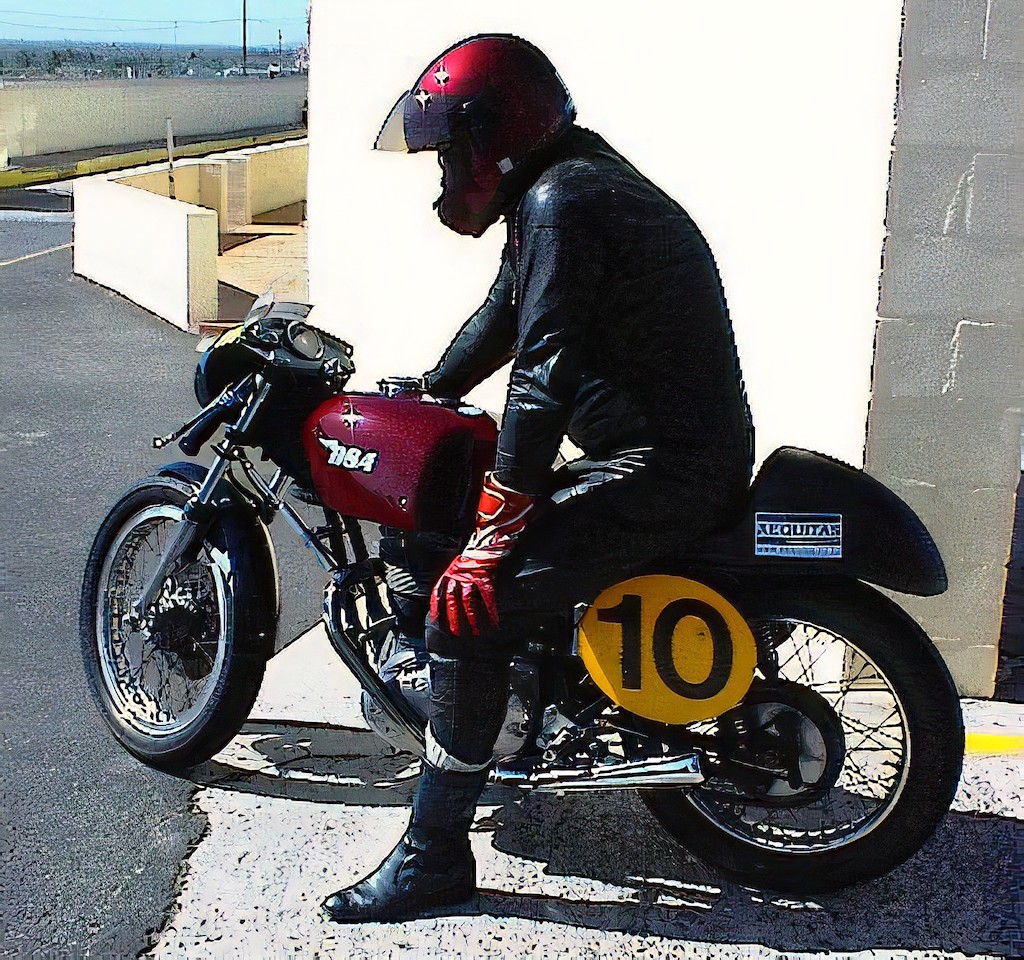
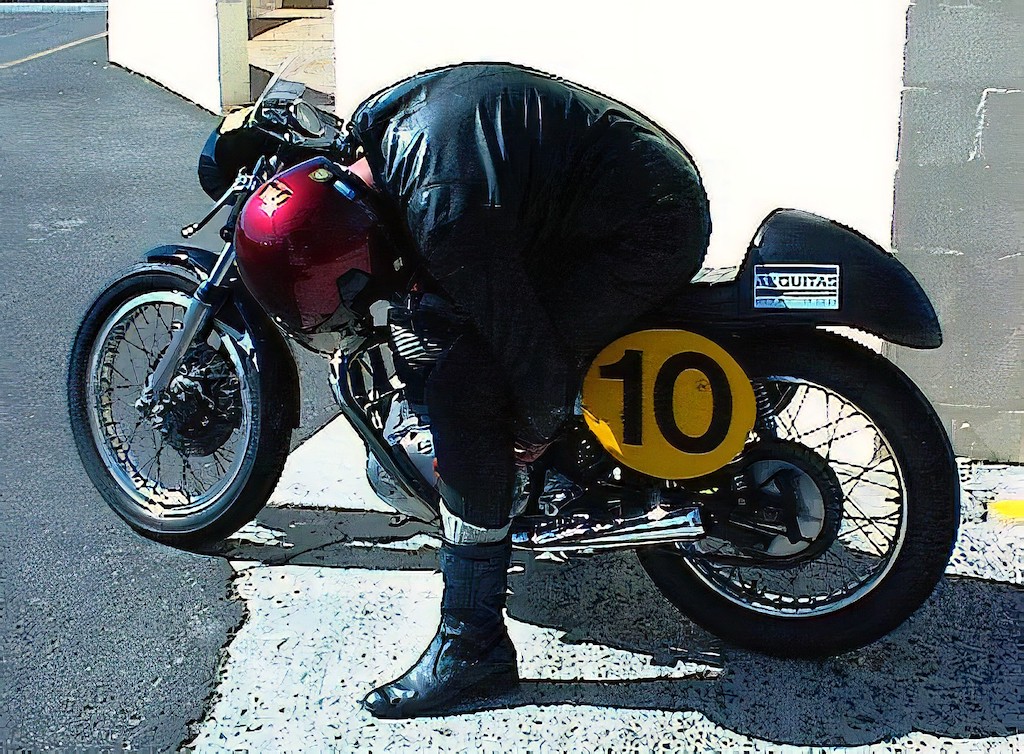
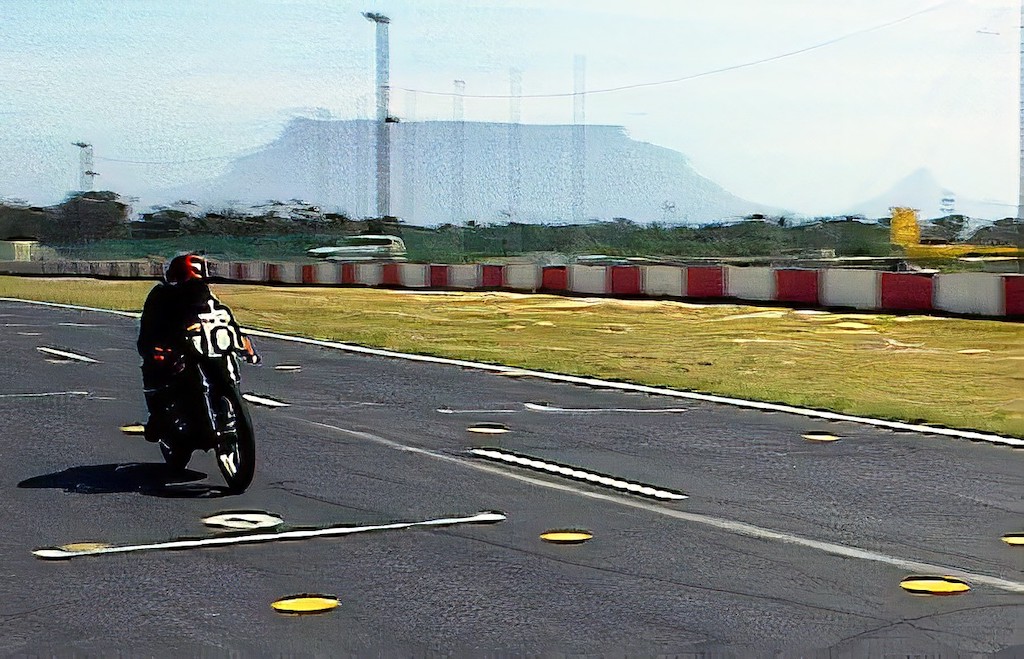
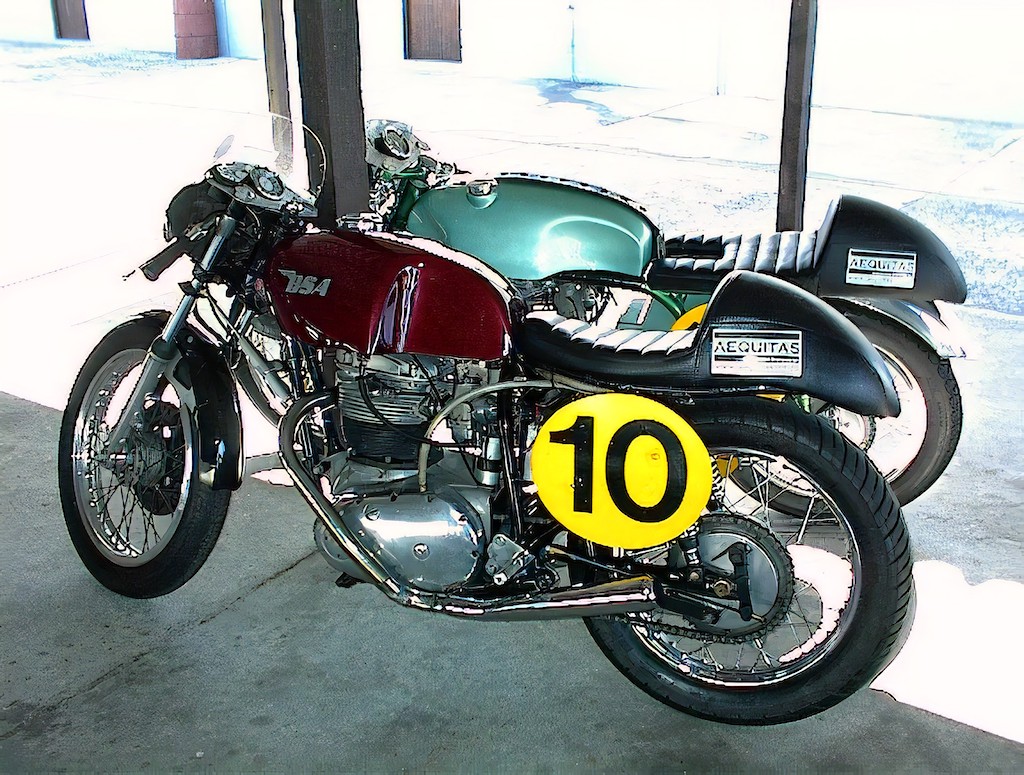
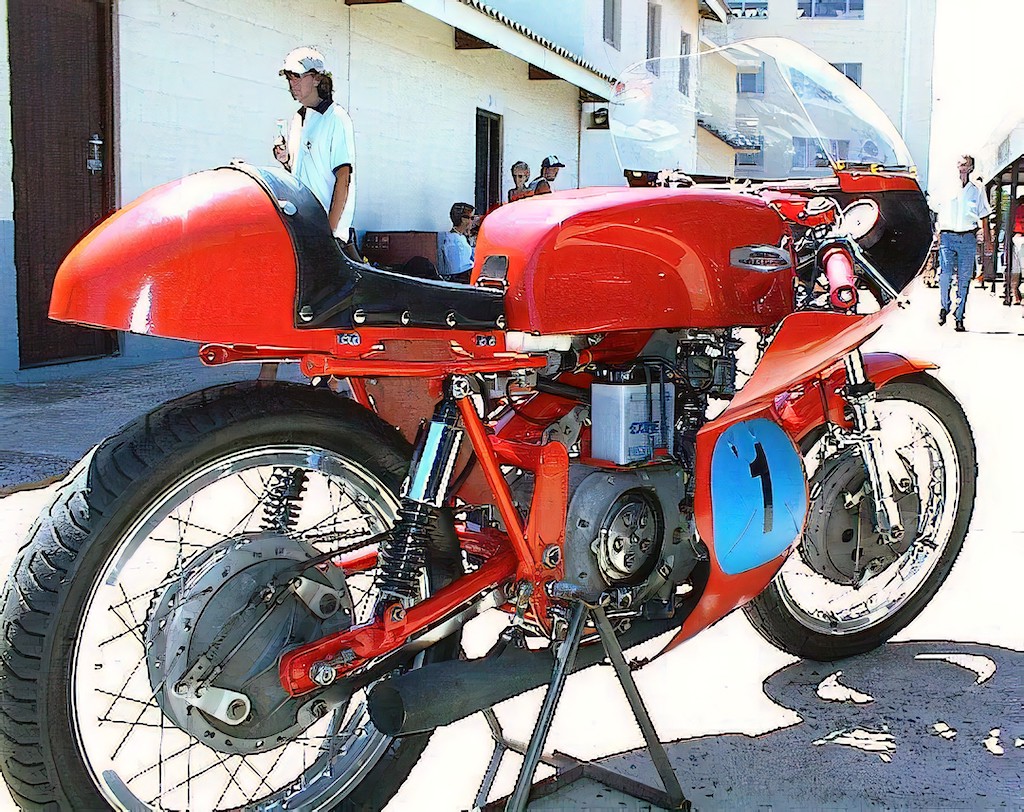

Results
Thursday, 3 February 2005: Classic British Racing arrives at the Killarney circuit in Cape Town after a 10 hour road trip from Port Elizabeth.
Friday, 4 February 2005: Free practice begins. First out is the Triton. Although the bike shows speed and excellent handling, it is immediately obvious that further tweaking is required. After a short run on the BSA, it is decided to race the latter. After several runs, lap times of 1:54 are achieved. The day was not without mishap as the Aequitas representative banged his head on a beam in the pits, eliminating him from the proceedings for the following day.
Saturday, 5 February 2005: After further practice, lap times were reduced to 1:48.
Sunday, 6 February 2005 (First Race): On race day, temperatures soared to as high as 42 degrees centigrade in the area of Killarney Racing Circuit. Running as number 10, the Classic British Racing BSA finished 5th of 8 runners in the “Classic” class with a best lap of 1:50.887. Overall placing was 12th out of 16 runners consisting mostly of much newer, faster bikes of the “Vintage” class. The rider, Ray Wakefield, reported difficulty in selecting 2nd gear due to a dragging clutch. The bikes had been forced to wait for 15 minutes before the race as oil was cleared from the track with the heat undoubtedly taking its toll on the machines and riders. Irrespective of problems, Wakefield had no difficulty in holding off local boy Charlie van Niekerk, riding a 1971 Triumph Bonneville, in the closing laps.
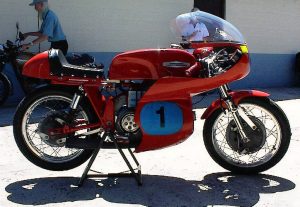 Sunday, 6 February 2005 (Second Race): The Classic British Racing pit gained a foreign visitor shortly before the second event as a 1968 Aermacchi Ala D’Oro 350 was offered to Ray Wakefield for the race. The original rider, John Hammond, was unable to participate due to international racing license issues. Hammond raced this beautiful machine continuously from 1969, when he purchased it, until he retired from active racing after an incident during practice for the 1997 Manx Grand Prix. Fearsomely fast, the bike has produced excellent results on ultra fast circuits such as Silverstone, where it has been ridden to 12 victories from 15 starts. The Aermacchi, however, cannot be considered a full member of the Classic British Racing stable as electrical problems forced a withdrawal on the parade lap, to the disappointment of the team and the spectators alike.
Sunday, 6 February 2005 (Second Race): The Classic British Racing pit gained a foreign visitor shortly before the second event as a 1968 Aermacchi Ala D’Oro 350 was offered to Ray Wakefield for the race. The original rider, John Hammond, was unable to participate due to international racing license issues. Hammond raced this beautiful machine continuously from 1969, when he purchased it, until he retired from active racing after an incident during practice for the 1997 Manx Grand Prix. Fearsomely fast, the bike has produced excellent results on ultra fast circuits such as Silverstone, where it has been ridden to 12 victories from 15 starts. The Aermacchi, however, cannot be considered a full member of the Classic British Racing stable as electrical problems forced a withdrawal on the parade lap, to the disappointment of the team and the spectators alike.
